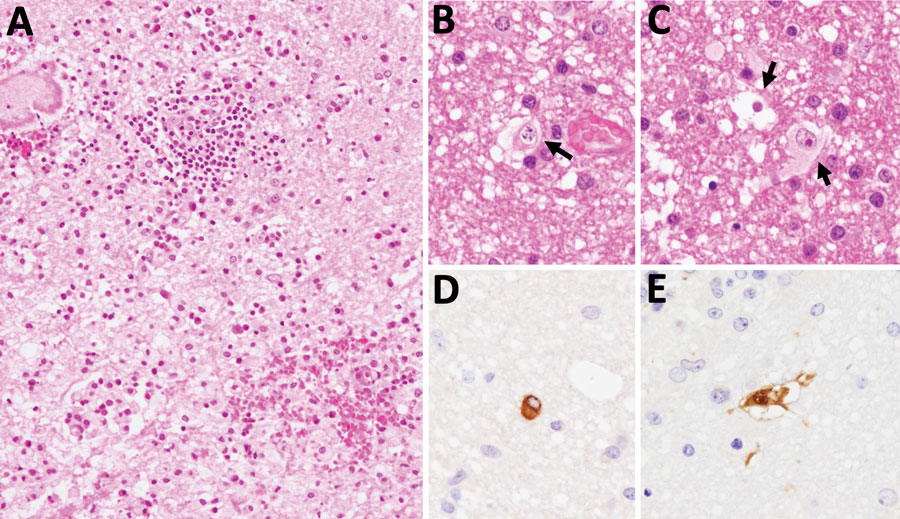Volume 30, Number 1—January 2024
Dispatch
Macacine alphaherpesvirus 1 (B Virus) Infection in Humans, Japan, 2019
Figure 1

Figure 1. Brain biopsy from patient (patient 2) with Macacine alphaherpesvirus 1 (herpes B virus) infection, Japan, 2019. A–C) Inflammatory cell infiltration and hemorrhage observed around blood vessels in the cerebellar white matter. Arrows indicate nuclear inclusion bodies (B, C). Hematoxylin and eosin stain. D, E) Immunohistochemical analysis using B virus gB mouse monoclonal (clone 19B6) (D) and an B virus rabbit polyclonal (E) antibodies as the primary antibodies. Original magnification × 200 for all images.
Page created: November 02, 2023
Page updated: December 20, 2023
Page reviewed: December 20, 2023
The conclusions, findings, and opinions expressed by authors contributing to this journal do not necessarily reflect the official position of the U.S. Department of Health and Human Services, the Public Health Service, the Centers for Disease Control and Prevention, or the authors' affiliated institutions. Use of trade names is for identification only and does not imply endorsement by any of the groups named above.